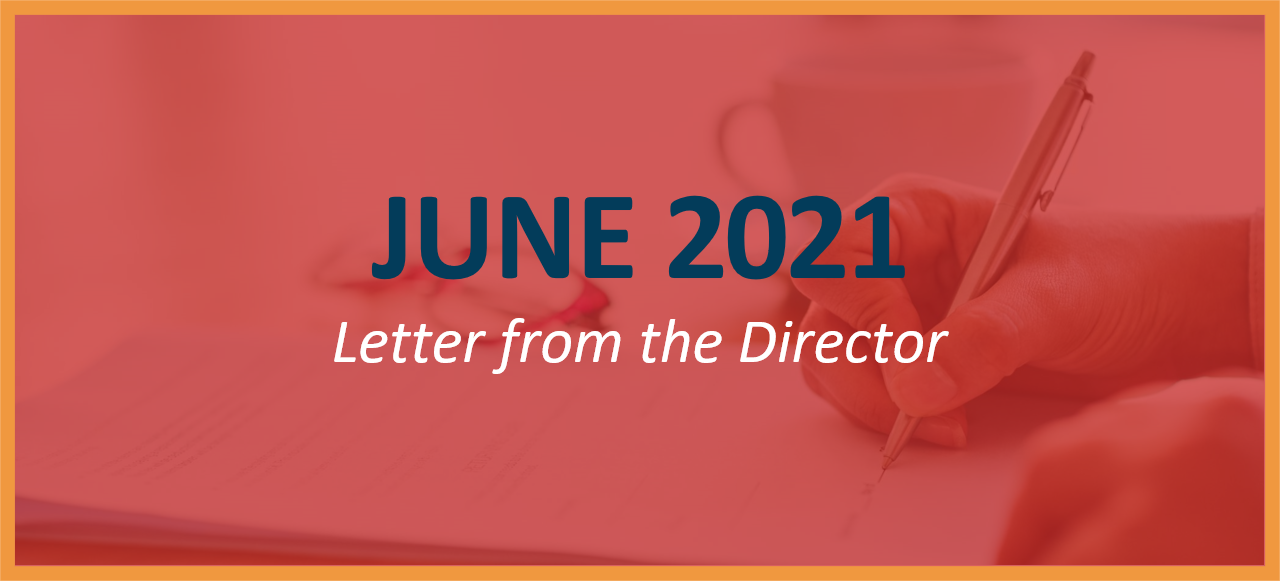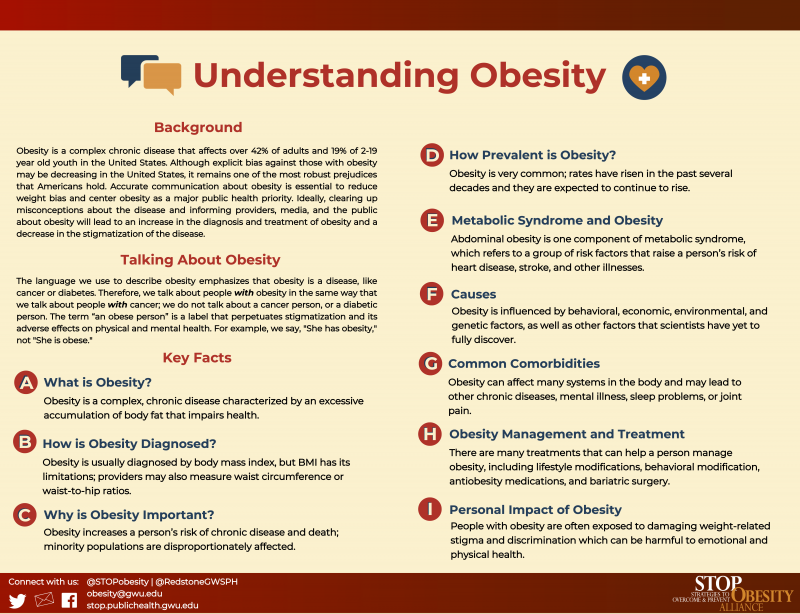This month's newsletter is written by guest author Amelia Corl. Amelia recently graduated from The George Washington University’s Milken Institute School of Public Health and is a Research Assistant with the STOP Obesity Alliance. This article was written as a component of the author’s Culminating Experience project titled “A Messaging Framework for Obesity.”
Although obesity is highly prevalent and widely known, misconceptions about obesity abound and can cause real harm to those living with the disease. To address this misinformation, we created a messaging framework about obesity. Our framework, Understanding Obesity, features accessible and unbiased information about obesity, including information about the harms of weight bias, as well as guidance on destigmatizing the language used to discuss obesity.
Messaging is important across many arenas, including healthcare, policy, and the media. Refining messaging in the healthcare setting is essential because experiences of bias from providers can discourage people with obesity from seeking healthcare. In policy settings, public health messaging around obesity affects how both the public and policymakers view potential obesity solutions. In the media, people with obesity are often portrayed in a negative and stigmatizing fashion, such as showing their abdomens without showing their faces. Introducing accurate and destigmatizing information about obesity across these key settings will promote the diagnosis and treatment of obesity, decrease weight stigma, and increase support for public health policies designed to benefit those with obesity.
To achieve these goals, we sought input from key stakeholders in the field including researchers, healthcare providers, advocates, and people with obesity. Our consensus-building process identified a few key concepts that stakeholders wanted to emphasize. First, they suggested an approach that identified and debunked common misconceptions about obesity. They also highlighted four overarching ideas to be reflected throughout the report:
- Obesity is a disease that is influenced by biology and genetics
- Obesity should not be framed as an individual choice or a “lifestyle”
- Prevention and care are synergistic
- Bias and stigma get in the way of prevention and care
Throughout the guide, we stress the harm of weight bias and communicate these core ideas from the consensus-building process. The guide consists of a background section, followed by a section on speaking about obesity, followed by a detailed review of nine key topics, summarized below.
Obesity is a significant public health issue that will continue to be a priority for the foreseeable future. Because of the stigma and misinformation surrounding obesity, providing healthcare providers, policymakers, and the public with a source of unbiased information is a key health promotion intervention with the capacity to reduce weight-based discrimination and improve evidence-based healthcare for those with obesity. Changing the narrative around obesity will take time and effort but will have a positive impact on those living with the disease. It is our hope that by sharing the Understanding Obesity guide with you, we can move towards this goal.



